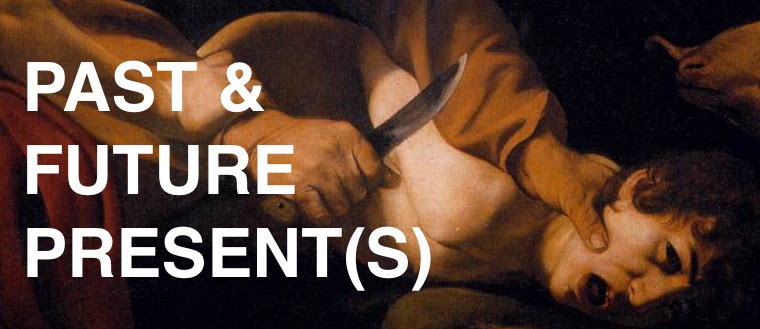 |
| George Grosz, "The Communists Fall and Foreign Exchange Rises," 1919. via the Brooklyn Museum |
In 1975 Edward Said wrote a short piece on the breakout of civil war in Lebanon. The essay was originally published in a pamphlet entitled "Lebanon: Two Perspectives" by the Association of Arab-American University Graduates (AAUG) containing just an essay each by Said and Leila Meo. Said's essay has never been collected in any of his many books, so it has been reproduced below for your reading pleasure.
***
Most attempts to describe modern Lebanon have now broken down, as has the country itself since the past spring. A certain amount of necessary disorder in Lebanon has always been assumed, even cherished, by the Lebanese and by experts on Lebanon the unlikely mix of dozens of political, religious, ideological, and social forces with as many theories and techniques for understanding or reconciling them has created a scheme of Lebanon based on its rational irrationality. For after its last civil war in 1958 Lebanon prospered unimaginably, and acquired a reputation for making the impossible work. Yet — and here the recent violence bears me out — there was no particular vision articulated, built upon, institutionalized. Instead the well-organized Phalanges, for instance, took a right-wing abstraction for its stand and drew Moslem Arab Lebanon out of the picture. But the Phalanges was doing no more than what the unwritten national pact of 1943 had hinted each self-proclaimed group do. And when private myths backed by private armies encountered each other in reality, bloodshed and anarchy followed. No coherence of vision, no Lebanese national consciousness, no clear foals or priorities stood in the way.
There is tremendous waste now in Lebanon; the mood is national suicide. It is a direct consequence of the willed uncertainty Lebanon has cultivated since its independence. Yet every Arab and hordes of parasitic foreigners, have profited from the wanton freedom of its atmosphere. Syria and Israel, one as neighborly Arab and the other as a hostile state, have viewed Lebanon as to be pressured or invaded at will. Compared to the grayness of Israel and the other Arab States, Lebanon has spontaneity and an unframed charm. There were no actively abused minorities, no legislated nonpersons. Nevertheless its prosperity and its energetic hustle had no particular content to them; they could be done with as either a foreign patron or a local talker liked. What Lebanon represented, what nationally it stood for, remained an unasked question. Here and there a sensible vision of a pluralistic Lebanon emerged, but could not prevail. There was mind but no real will or body.
The present fighting is not between two sides, one Christian, one Muslim, one right, one left, one inside patriot, one outside agitator, one good, one bad. Israeli pieties about Lebanon’s embattled Christians are fatuous hypocrisy since, aside from using Maronite fantasy to support Zionist exclusivity, Israel has shown comparable piety only for destroying the Arab realities of Palestine. There is no simple oppositions in Lebanon and no unitary front, just as there are no simple certainties over which people will fight. The crisis is a crisis of representation. No single group represents either a decisive majority of people and power or a decisive majority of ideas. The street fighter is not represented by the group or leader in whose name he fights, and vice versa. No party speaks for all the Christians, nor for all the partisans of Lebanese (as opposed to Arab) nationalism. Yet people take to the streets fighting, to see what can happen. A vicious way to explore and test, but in Lebanon very few know any better.
Certainly the ruling class cannot tell the people what will happen; no such class in recent history has been so short-sighted and ignorant as this one. It has not even learned how to preserve itself, much less to conduct the country's affairs. Intellectuals have small credibility in Lebanon, not because they have no good ideas, but because that is all they have. The middle class in impotent, its education notwithstanding; having without even a peep abdicated its right to participate in the country, except for making the easiest money on earth, it is now shelved and frightened. The Palestinians in Lebanon have something to say, but only a handful will listen to them since Lebanon is not Palestine after all. Yet the idea of a pluralistic society advocated for Palestine will be intensified, no shaken by the Lebanese tragedy. The great mass of poor people, put hideously in relief by the vulgar spending within a few yards of them, endure but more and more frequently cross from the bidonville into the militant ranks.
The crisis of representation is Lebanon’s own, of course, but there are other things involved in it too. Part of the fighting is about who will, and has a right to, speak for the Arab future, the metropolis or the rural village. This is a profound uncertainty reflected everywhere. Does metropolitan Cairo have the right to dictate the future with its Sinai deal, or do the villages, slums, camps have it, where the majority lives and suffers? Do traditional politicians speak or should a party? The older generation or a younger one? A valueless military-economic alliance or an authentic socio-political movement?
None of these questions are resolved in Lebanon today. For its disorder and weakness this fragment of the Arab East suffers the combined evils of Third World politics, religious bigotry, imperialist design, internal mutilation. To suffer these is bad enough, but not to have a citizenry able to act on its behalf is worse yet for this otherwise marvellous country.
Edward W. Said, "The Sorrows of Lebanon," Arab World Issues: Occasional Papers, Number 1., (Detroit: Association of Arab-American University Graduates, Inc., 1975).

This was lovely, thanks for sharing this
ReplyDelete